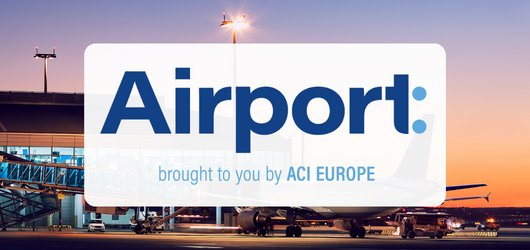ACI EUROPE statement on charges for the parking of aircraft at airports during the COVID-19 crisis
27 March 2020Summary: Airports, like other actors in the air transport eco-system, should continue to charge for services provided during the COVID-19 crisis.
Parking of aircraft is an economic activity which creates cost for airports, and airports should be allowed to recover those costs as established in published airport charges. Airlines are not flying passengers and cargo for free, and neither should airports provide their services for free.
1) As a first principle, airports, like other actors in the air transport eco-system, should continue to charge for services provided during the COVID-19 crisis – including parking for aircraft.
Airports face weeks and potentially months with revenues near zero, equally resulting in liquidity strains. At the same time, most of them are required to remain operational to accommodate air traffic – including emergency & sanitary flights, State flights, and cargo traffic. In this situation, airports thus have significant fixed costs both on the operating & non-operating side, including debt service which continues regardless of the revenue or traffic situation.
2) Parking of aircraft is an economic activity which creates cost for airports, and airports should be allowed to recover those costs as established in published airport charges.
Airlines are not flying repatriation flights for free, nor moving air freight at lower costs (in fact they are doubling prices). Neither should airports provide aircraft parking services for free. More broadly, it is important to understand the context around parking charges:
• Aircraft parking charges account for less than 2% of airports’ revenues in a normal year.
• Parking of aircraft at an airport results in an operational, infrastructure and capital cost for the airport, which the airport should recover through charges to users.
3) Any deferment, rebate or waiver on parking charges by airports should be left at the discretion of each airport operators.
A blanket requirement from States or regulators for such deferment, rebate or waiver is not justified and would result in a mandatory value transfer from airports to airlines. This would amount to a discriminatory and unbalanced response to the crisis – i.e. a supporting measure benefitting one actor of the air transport ecosystem at the expanse of another actor. ACI EUROPE is hereby reiterating its call for the European Commission and EU States to adopt supporting measures that benefit the whole air transport ecosystem (see letter of 23 March 2020).
Therefore, decisions to defer, rebate or wave parking charges must remain autonomous decisions taken by airport operators based on commercial and financial considerations. This means that while some airports might suspend, rebate or wave parking charges, others will either not need to do so or not be in a position to do so. Where an airport operator chooses to do so, authorities should seek to expedite the reduction, and ensure that the reduction will not be grounds for appeals.
4) Ensuring air traffic recovery requires equal treatment & a focus on a platform for recovery
The recovery of air transport in Europe after the COVID-19 virus has been controlled will depend on the health of all service providers and their ability to return to full operation. This depends in business continuity today. Governments and authorities should ensure that regulatory structures allow airports to use their pricing to focus on the recovery of traffic to levels before the COVID-19 crisis and continue to invest for the provision of adequate quality future infrastructure. This will require governments and authorities to provide airports with flexibility and adaptability of their charges.
Learn more at www.aci-europe.org/covid-19>>


